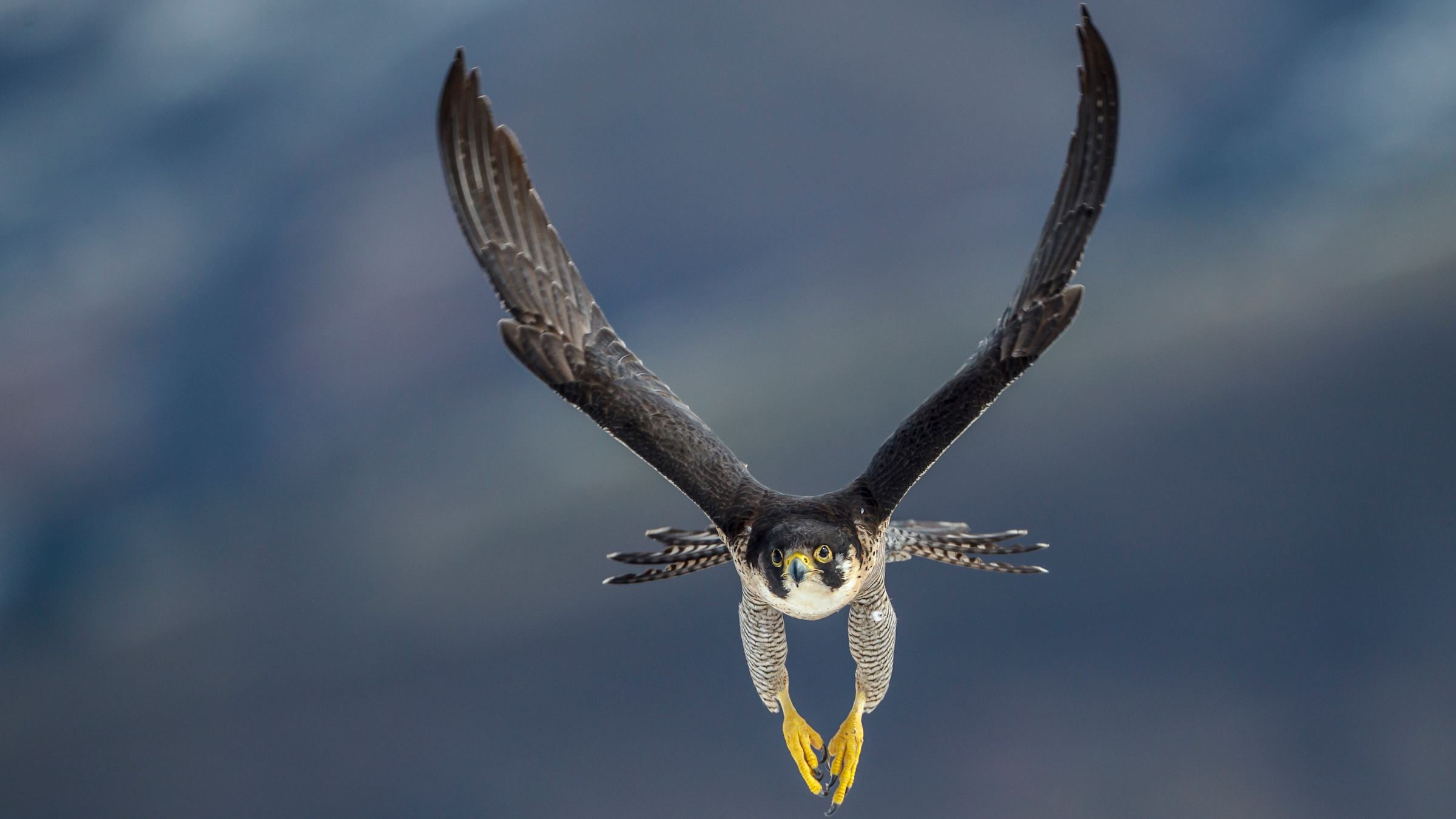What Is The Fastest Animal On Land
What is the fastest animal on Earth?

Ask anyone what the fastest animal on Earth is, and they'll probably say the cheetah. Only the focus on the speedy feline has stolen attending from other species that go much faster — some iii or more times faster than the cheetah. Who are the overlooked speedsters of the beast kingdom?
To be clear, the cheetah (Acinonyx jubatus) is undeniably fast. And it is true that information technology's the quickest creature on land. With documented top speeds of 64 mph (103 km/h), the cheetah easily surpasses other swift animals, like racehorses, to have the title of world'due south fastest land animate being. And some estimates of their peak speed are closer to lxx mph (113 km/h), according to the Smithsonian National Zoo & Conservation Biology Institute.
A combination of leg length, musculus size and a long stride gives the cheetah the ideal body for running beyond land, said John Hutchinson, a professor of evolutionary biomechanics at the Royal Veterinary Higher in London. Plus, a 2017 model based on 474 country and marine species, ranging from whales to flies, demonstrated that speed is closely tied to size. Speed increases with size until you reach an optimum. Across that optimum, larger animals are slower considering they require more free energy to accelerate. A cheetah has the optimal medium size for speed, Hutchinson said.
Related: Why don't tigers live in Africa?
However, cheetahs are only the fastest animals on land over short distances. That's considering they don't pursue prey at loftier speeds for long distances. Their hunting strategy is more near accelerating and maneuvering very chop-chop, according to a 2013 study in the journal Nature. In essence, their endurance is limited. "Cheetahs, like most cats, aren't pursuit animals," Hutchinson said. No other land species can get to 70 mph, or even 64 mph, simply the pronghorn antelope (Antilocapra americana) is estimated to reach lx mph (97 km/h) and tin can sustain a speed of 45 mph (72 km/h) for miles, according to the volume "Built for Speed: A Yr in the Life of Pronghorn (Harvard University Press, 2003).
Once y'all include marine and avian animals, the competition actually heats up. The dive speed of peregrine falcons (Falco peregrinus) has been recorded at over 200 mph (322 km/h), according to Guinness World Records. In fact, they may dive at speeds of 350 mph (563 km/h), though scientists haven't officially documented a speed that loftier.

"Quite a few flying birds can get faster than a cheetah," Hutchinson said. The common swift (Apus apus) has been measured to fly 69 mph (111 km/h), and the white-throated needletail (Hirundapus caudacutus) is estimated to reach speeds of 105 mph (169 km/h), according to the National Audubon Guild.
The ocean, too, holds an aristocracy listing of speedsters. Black marlins (Istiompax indica) take been clocked at 80 mph (129 km/h), co-ordinate to Britannica, and the swordfish (Xiphias gladius) and sailfish (Istiophorus) can reach speeds of 60 mph (97 km/h) and 68 mph (109 km/h), respectively, co-ordinate to information from the ReefQuest Centre for Shark Research.
So, while the chetah deserves its place among the fastest animals on the planet, it gets an undue share of the limelight. One reason for that, Hutchinson said, is that most animals' speeds haven't been studied thoroughly. The speeds of racehorses, cheetahs, greyhounds and camels have been measured advisedly and repeatedly; researchers even verified that the animals were fully exerting themselves, he said.
But most other animals' speeds are but observations and estimates, Hutchinson said. They give us an idea of how quickly these animals motion, but the estimates are "not good [enough] data for a nitpicky scientist," he said.
Originally published on Live Science.
Source: https://www.livescience.com/worlds-fastest-animal.html
Posted by: ingramfaies1970.blogspot.com


0 Response to "What Is The Fastest Animal On Land"
Post a Comment